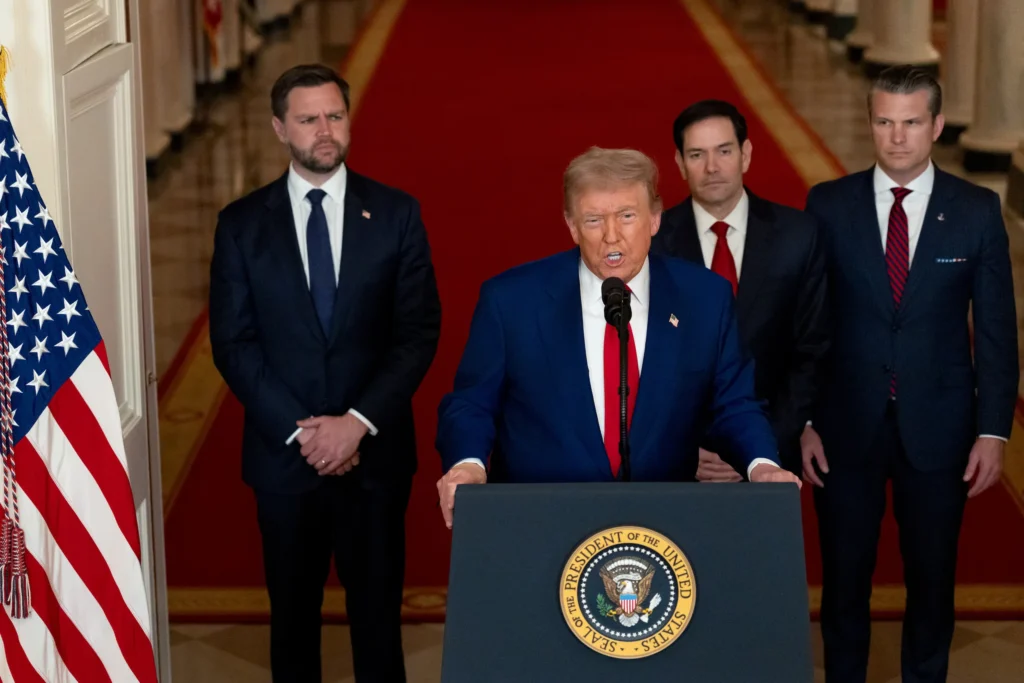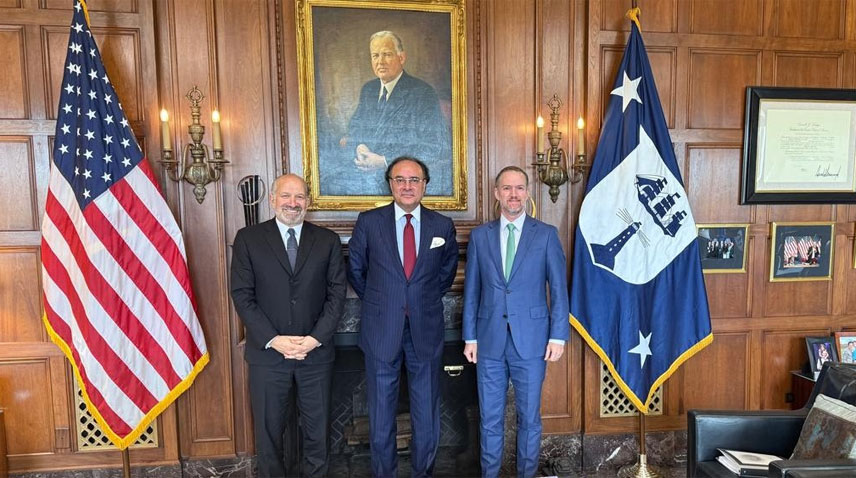In a bold and controversial move, former U.S. President Donald Trump has authorized airstrikes on key Iranian military installations, triggering widespread global alarm and raising concerns over a potential expansion of conflict in the Middle East. The bombing, which targeted facilities allegedly linked to Iran’s strategic defense network, has sparked fears of a full-scale regional war.

According to sources within diplomatic circles, the sudden escalation was not preceded by significant efforts at diplomacy, adding to criticism that Trump is reverting to a policy of force rather than negotiation. While the strike is being framed as a defensive measure in response to alleged Iranian provocations, international observers warn that such unilateral action could destabilize an already volatile region.
The timing of the strike is also raising eyebrows. With increasing domestic political pressure and ongoing legal challenges at home, critics argue that the move may have been politically motivated. Many analysts believe the airstrikes are a diversionary tactic designed to rally nationalist support and shift public attention from internal controversies.
The bombing campaign led to significant destruction at targeted sites, though reports about casualties remain unclear. Iranian officials have condemned the attacks as violations of international law and have vowed retaliation. Military and strategic analysts fear that such a response could lead to further escalation, pulling in neighboring countries and possibly igniting a broader military confrontation.
Meanwhile, civilian populations across the region remain on edge. In cities like Tehran, Baghdad, and Beirut, the atmosphere is tense, with residents bracing for potential fallout. Economic markets have already begun reacting, with oil prices surging and global stocks seeing increased volatility.
One of the most alarming aspects of the situation is the speed at which diplomatic channels have broken down. Without clear lines of communication or mediation, the risk of miscalculation is dangerously high. Regional powers are urging restraint, but the lack of a coordinated international response highlights the fragility of current geopolitical alliances.
Humanitarian organizations are also sounding the alarm. A wider conflict would endanger millions and further burden already strained relief efforts in war-affected zones. The possibility of displacement, infrastructure collapse, and access restrictions to essential supplies has prompted calls for immediate de-escalation.
In the U.S., the move has drawn mixed reactions. While some conservative factions have praised the show of strength, a significant portion of the American public and lawmakers are questioning the wisdom of reigniting a conflict in the Middle East without congressional approval or a clear long-term strategy.
With tensions at an all-time high and rhetoric escalating on both sides, the world watches with growing unease. Whether this is a one-off military maneuver or the beginning of a sustained campaign remains to be seen—but what is clear is that Trump’s bombing of Iran has pushed the region to the brink of a new crisis.
#TrumpIranStrike #MiddleEastCrisis #IranBombing #USMilitaryAction #TrumpForeignPolicy #GlobalTensions #MiddleEastConflict #NoToWar #GeopoliticalTensions #IranCrisis #WarRisk

















